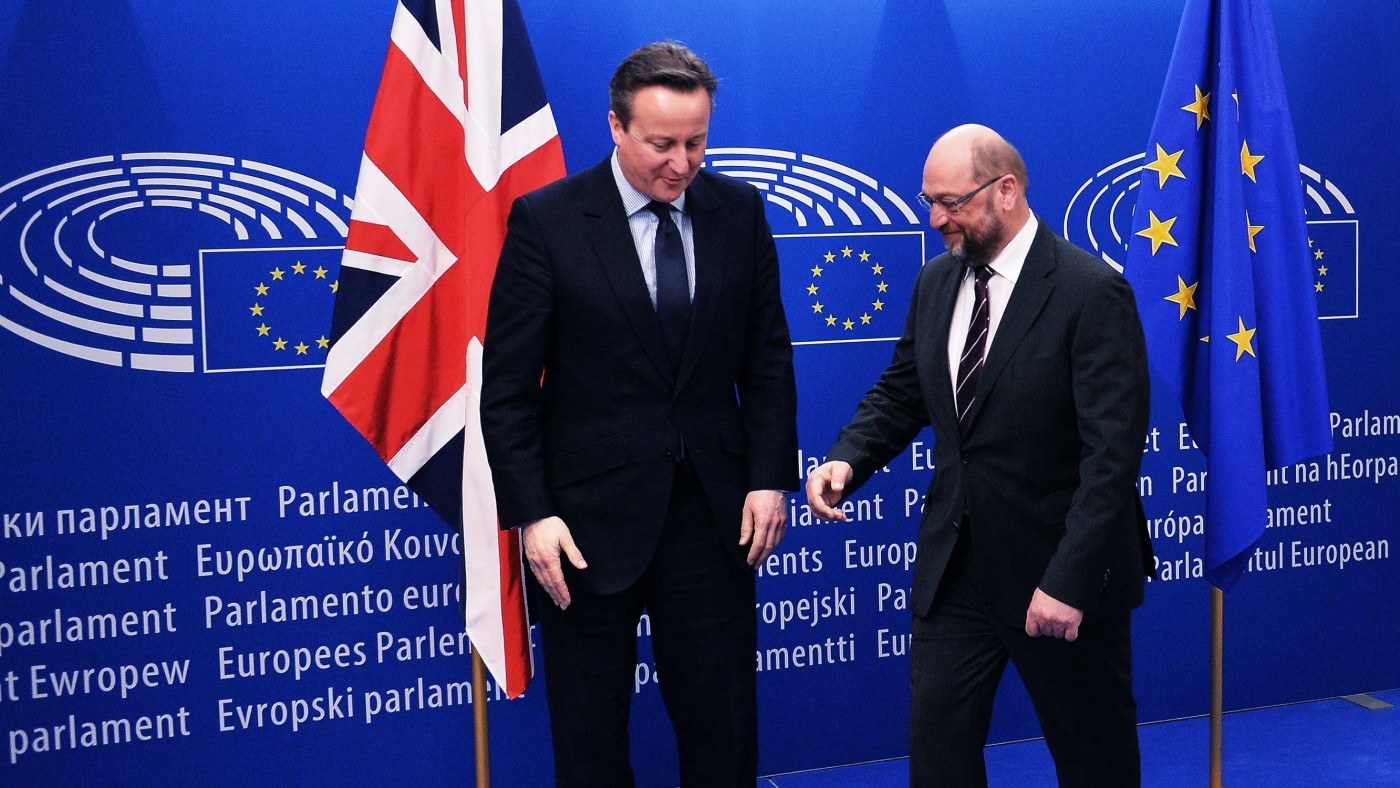Why, the political editor of the Evening Standard Joe Murphy tweeted earlier, is the UK press corps learning more about what is in David Cameron’s renegotiation deal from listening to the ministers of other countries being interviewed on the BBC than it is from Number 10? It is a good question, which illustrates the ridiculous position the Downing Street operation has got itself into ahead of the finalisation of its EU deal, expected to be agreed on Friday or Saturday. Number 10 clearly wants to control the flow of information and present this deal as a titanic struggle in which Her Majesty’s Government is wringing historic concessions out of the Brussels machine. And here are ministers from other countries admitting the mundane truth that the great renegotiation – billed several years ago by Cameron and Osborne as a chance for treaty change and a fundamental rethinking of the structure of the EU – really comes down to a largely pointless row about child benefit and for how long it can be withheld from new migrants. We learn today from the helpful Czechs that the new rules will not apply to migrants already here. So there you go.
For those of us – me included – who believed several years ago that the renegotiation was a serious opportunity to create a proper two-speed EU, and that Cameron grasped the point, this is a chastening moment. The negotiation has produced little more than that farce on child benefit, a red card that is equivalent to a football referee having to ask the managers of every team in the league whether or not he can use it, and something not particularly convincing on the protection of the UK and the City from Eurozone rules. All this is pretty much agreed already between the advance teams – the sherpas – and there will now be a bit of theatre, during which do not be susprised if Cameron produces another “surprise” extra “win” that has been agreed already in secret but does not survive contact with the political editors of Britain’s Sunday newspapers this weekend. That is how modern summitry works.
And yet, Number 10 and senior civil servants are condemned by the logic of the process they instigated to carry on with the pretence that they are about to secure the contemporary equivalent of Magna Carta. Only, something is wrong. The voters do not, so far, seem to be buying the charade.
For Number 10 this must be extremly disconcerting. The backlash in Fleet Street against the deal when its broad terms were outlined earlier this year was ferocious. Worse, the polls (health warnings apply) are going in the wrong direction. With the Leave campaigns at war (or, rather, the UKIP-backed Leave EU campaign bombarding the moderate Vote Leave and getting no response) the deal was supposed to produce a contented sigh from voters and a large lead for Remain. If anything, the polls appear to be narrowing. It is as though some of the voters have worked out what is really going on.
How could Number 10 have got itself into such a mess? It happened, it appears, because of the diplomatic bubble and the strange effect inhabiting it has on otherwise bright people when they are trying to get a deal. For months a small and talented of team of officials has been shuttling in and out of Brussels, negotiating with Donald Tusk’s team and testing what EU governments will sign up to. This is what officials do. They are doing their job. They have been told to get a deal and they are getting a deal. If it doesn’t amount to very much that is not their fault, it is the fault of politicians who sent them to ask for not much.
But the diplomatic bubble can be a dangerously seductive environment, especially when the inhabitants of Downing Street – the Tory leadership – have been in power for quite a number of years and are used to people around them agreeing that they are brilliant and their deal all makes sense. This makes it difficult for those involved to stand back and say: hold on, how did this end up hinging on child benefit indexation for new immigrants and a few other dribs and drabs that do nothing to restore sovereignty or border control? Think about it. Number 10 has become hypnotised by its own drawn out process and cannot see how ridiculous its deal looks outside the gates of Downing Street and beyond the confines of the business class carriage on the St Pancras to Brussels Eurostar. I wonder if George Osborne sees it clearly yet. Bet he does.
The most likely outcome continues to be a Remain vote, because the Brits are usually a risk averse bunch. Still, if, if, if a coherent Leave campaign emerges, then the Brexit crowd will have a serious charge to make that may well resonate widely. Even when the UK government spent more than a year saying that it is serious this time, that the UK might leave, the best the rest of the EU could offer is this joke of a deal.


